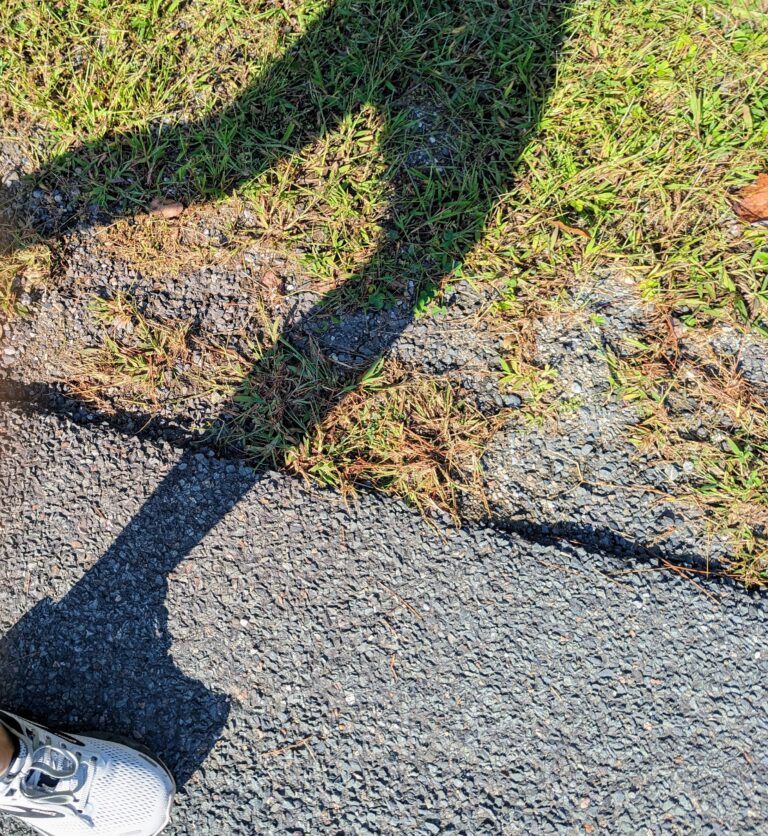
16 September 2024
You should know that what follows will *not be a technical article about running. On the spectrum of being well-informed about running I’m likely above average. Through my clinical doctorate in physical therapy I have studied biomechanics, and treated people who run, or want to run again in various settings. I’ve worked with pregnant runners, postpartum runners in the PT clinic, and I’ve worked on marathon runners immediately post-event as a massage therapist. And I love running, kinda. I’ve had a complicated relationship with running for over a decade, almost two at this point in time.
I recently read, “What I talk about when I talk about running,” a memoir by Haruki Murakami. I don’t consider myself a very discriminatory reader and I enjoy memoirs so I’d highly recommend it to anyone, but especially to long-distance runners or fellow introverts. He writes, “for me, running is both exercise and a metaphor,” and continues in a different direction than I’d like to go, so I’ll respectfully say you’ll have to read his book to see what he means by this. And use it as a jumping off point for my purposes here.
I will say that running can obviously be just exercise, and that it also easily serves as a metaphor. But what do we do with a metaphor, as an aspiring runner, or simply as a person who has injuries that need attention?
An easy question for a physical therapist to answer is how do I run well, run safely, or how do I avoid injury while running or training. The complexity arises when that isn’t *really the question.
For examples:
RUNNING IS MY LIFELINE
I’m 1-2 weeks postpartum from a complicated birth, I also manage high levels of stress or anxiety by running. Running is/has been the only activity with the intensity and payback that makes me not want to peel out of my skin, or harm others (because of this stress.) I now hurt when I run at all, much less the 3-5 miles I require for stress management. I NEED to run and I KNOW in my bones that I am not ready/healed/recovered enough to run. I’m a new mom and more stressed than ever, and now can’t use the one tool I had mastered to quell my symptoms. —HELP
Or
GETTING SOMEWHERE BY RUNNING = GETTING SOMEWHERE IN LIFE
I have sustained a new foot (insert lower body part of choice) injury and am told to stay off it for 12 weeks. I am losing ground with my improvements (cardiovascular) or performance (speed). Not running is causing me so much mental anguish that I keep running anyway, and reinjuring my foot. And now I’m depressed on top of having a hurt foot, and losing precious training time.
I KNOW I need to rest and let the injury heal, and I MUST get back out there and run. —HELP
Or
RUNNING IS WHO I AM
I’ve been diagnosed with a curvature in my spine since I was young (scoliosis). It feels really good to do some types of exercises, but nothing entices me more than being a runner. But more and more after I run I have severe, sometimes debilitating back pain. Please don’t tell me just don’t run – I have heard that before. I WANT to run and sometimes it HARMS me to run. —HELP
The underlying metaphors in these few examples might quickly get passed down the line from physical issues to mental issues but what if those two layers are connected? A fragmented care system (even an integrated approach) doesn’t connect the dots between physical or functional obstacles. The stories above are about whole person issues and need whole person care.
What if you could learn some basic somatic skills which support both healing from injury and a new relationship to health? I want to be the provider who doesn’t just tell you to stop running. When we take into account the complexity of our experience we can start to find the best version of ourselves, moment to moment, in health. What kind of metaphors are showing up for you today?
